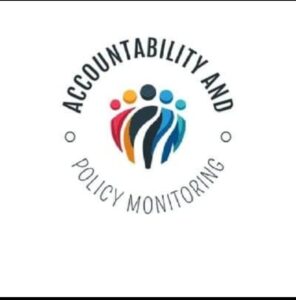**From Chaos to Community: Rethinking the Destruction of Seized Motorcycles in Abuja**

By Accountability and Policy Monitoring
The recent destruction of over 600 motorcycles by the Federal Capital Territory Administration (FCTA) has highlighted the government’s ongoing attempts to enforce traffic laws and address the widespread misuse of motorcycles in Abuja’s restricted zones. This effort, prompted by rising security concerns associated with commercial motorcycle riders, is supported by existing laws and is seen as essential for restoring order in the city.
While the justification for this crackdown—enhancing security and curbing criminality—is evident, it raises important questions: Is destroying these motorcycles truly the best solution? Might there be a more constructive and economically beneficial alternative?
Rather than destroying these motorcycles, why not consider refurbishing and repurposing them to assist citizens, particularly in rural and disadvantaged areas? In many communities, motorcycles are crucial for transportation, commerce, and access to essential services. By redistributing these seized motorcycles to responsible individuals in need, the FCTA could significantly help reduce poverty, create jobs, and enhance living standards in remote parts of the capital territory.
This concept is not unrealistic; it is founded on sound economic principles and has parallels in other sectors. The Nigeria Customs Service, for instance, regularly confiscates smuggled goods but typically opts to auction them or donate them to verified organizations rather than destroying them. This approach allows seized assets to retain their economic value and serve the public good. The same principle could be applied to confiscated motorcycles.
Destroying motorcycles that could be put to better use holds little economic merit. The FCTA needs not only enforcement but also a proactive policy that views these motorcycles as potential avenues for economic empowerment. Seized motorcycles could be refurbished and allocated to individuals in rural communities under strict regulations. Recipients would be required to adhere to agreements detailing their responsibilities, with violations leading to harsh penalties, including permanent confiscation and legal repercussions. This method would maintain the value of the seized motorcycles while fostering accountability, minimizing waste, and promoting lawful behavior.
Such a strategy could also help bridge the economic gap between urban and rural regions. In many satellite towns surrounding Abuja, transportation remains a pressing issue. By equipping responsible citizens with motorcycles, the FCTA would enable them to generate income, access education, and elevate their standard of living. Furthermore, this initiative could help alleviate the desperation that often drives individuals toward criminal activities, such as using motorcycles in robberies or kidnappings.
Notably, the Economic and Financial Crimes Commission (EFCC) provides a more economical model. When it seizes vehicles, properties, or illicit funds, it does not destroy them; instead, it auctions them or returns them to rightful owners, preserving value and deterring crime without waste. Imagine the public outrage if the EFCC began incinerating seized cash or demolishing recovered houses. Why, then, should motorcycles—assets that can be repurposed for legitimate livelihoods—be considered disposable?
The recent capture of a car theft ring in Abuja, which resulted in recovering stolen vehicles and arresting multiple suspects, underscores the city’s ongoing security challenges. While law enforcement is crucial for maintaining order, a more comprehensive approach is necessary—one that blends rigorous enforcement with innovative, community-centered solutions. Merely destroying seized motorcycles may provide a quick solution, but it does little for the larger goal of societal improvement.
By prioritizing rehabilitation and empowerment, the FCTA has the chance to convert seized motorcycles from symbols of violation into instruments of economic opportunity. This shift in policy would not only aid rural communities but also establish a model for other states to follow regarding the utilization of seized assets for public benefit.
As Abuja continues to grow, it’s essential that policies recognize and cater to its diverse population, serving the needs of both urban and suburban residents. Effective governance requires not just strict law enforcement but also a willingness to embrace innovative ideas. Instead of relegating seized motorcycles to scrap, why not transform them into a pathway for progress?
Ultimately, the FCTA has an opportunity to illustrate that good governance involves more than punitive actions; it is about creating opportunities, empowering citizens, and investing in the future. It’s time to rethink our approach to seized motorcycles, converting them from instruments of destruction into assets for community development and economic advancement.







